#EconomicSanctions
Text
In-Depth Analysis of 2024's Looming Challenges
Exploring 2024's potential global crises, this article delves into 100 key issues, from geopolitical tensions to economic shifts, seeking informed, proactive strategies for future challenges.
In-Depth Analysis of 2024’s Looming Challenges
Welcome to an earnest exploration of what 2024 might hold for us on a global scale. This blog post delves into a comprehensive analysis of 100 pivotal issues that could shape the forthcoming year.
Drawing from a multitude of sources across the web, I dissect geopolitical tensions, military escalations, economic fluctuations, and technological…
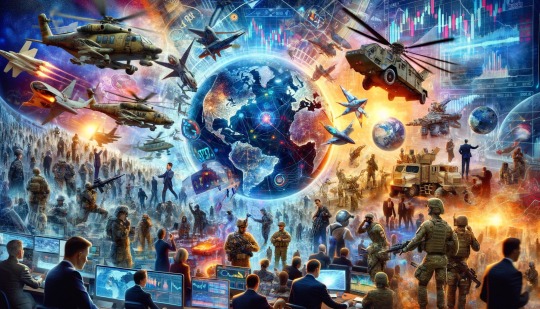
View On WordPress
#ClimateChangeImpact#CrisisPreparation#DefenseStrategies#EconomicFluctuations#EconomicSanctions#FutureForecasts#GeopoliticalTensions#GlobalChallenges2024#GlobalCrisis#GlobalLeadership#GlobalUncertainty#InternationalRelations#MilitaryEscalation#PrepperInsights#SecurityDynamics#SocioEconomicShifts#StrategicAnalysis#TechnologicalAdvancements#WorldPolitics
0 notes
Text
Vladimir Putin Seeks Fourth Term as Russian President: Stability, Achievements, and Challenges Ahead
#2024 #achievements #age #annexationofCrimea #authoritarianism. #challenges #consolidatepower #continuity #country #economicsanctions #fitness #fourthterm #influentialleader #Leadership #militarycampaigninSyria #nationalsecurity #oppositioncandidates #politicallandscape #popularityratings #power #presidentialelection #protests #reelection #RussianPresident #Russians #sovereignty #stability #stagnation #strongleader #tensionswithUkraine #vladimirputin
#Politics#2024#achievements#age#annexationofCrimea#authoritarianism.#challenges#consolidatepower#continuity#country#economicsanctions#fitness#fourthterm#influentialleader#Leadership#militarycampaigninSyria#nationalsecurity#oppositioncandidates#politicallandscape#popularityratings#power#presidentialelection#protests#reelection#RussianPresident#Russians#sovereignty#stability#stagnation#strongleader
0 notes
Text
White Phosphorus a crime against humanity
You may have come across the term White Phosphorus and its classification as a war crime when used against civilians. what exactly is White Phosphorus, and why does it pose a threat to human beings? Find out all the details in the following article.
#WhitePhosphorus#ForbiddenInWars#InternationalHumanitarianLaw#WarCrimes#GenevaConventions#InternationalCriminalCourt#HumanRightsViolations#CiviliansAtRisk#DiplomaticBacklash#EconomicSanctions#MilitaryInterventions#Accountability#PreventFurtherHarm#WarfareRegulations
0 notes
Text
The Impact Of Economic Sanctions On Countries
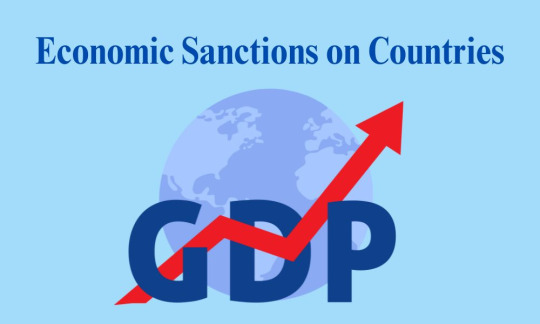
In today's globalized world, economic sanctions have become a common tool used by nations to exert pressure on other countries.
These sanctions are often imposed for various reasons, including political disputes, human rights violations, or concerns over national security.
While they may be implemented with good intentions, it's essential to understand their far-reaching consequences on the countries that bear the brunt of these measures.
In this comprehensive article, we will delve into the multifaceted impact of economic sanctions on nations, ranging from their immediate economic consequences to their long-term geopolitical effects.
What Are Economic Sanctions?
Economic sanctions refer to a set of coercive measures imposed by one country or a group of countries against another nation in order to influence its behavior or policies.
These measures can take various forms, including trade restrictions, trade wars, financial penalties, arms embargoes, and diplomatic isolations.
Trade sanctions involve limitations on the import or export of goods and services between nations. Financial sanctions may freeze assets, restrict access to international financial systems, or prohibit financial transactions with targeted entities.
Arms embargos restrict the sale or transfer of military equipment. Additionally, sanctions can include travel bans, visa restrictions, and diplomatic measures aimed at isolating the target country on the international stage.
Historically, economic sanctions have been employed for various purposes, such as punishing aggression, deterring human rights abuses, or curbing nuclear proliferation.
They have evolved over time, with their effectiveness and ethical implications debated among policymakers and scholars. Sanctions have become a prominent tool of international diplomacy, highlighting the complex interplay between economics and geopolitics in the modern world.
International Legal Framework
The international legal framework for economic sanctions is governed by a combination of United Nations (UN) sanctions, bilateral and regional sanctions, and the involvement of international organizations like the UN and the European Union (EU).
United Nations (UN) Sanctions: The UN Security Council has the authority to impose sanctions on member states to address threats to international peace and security. These sanctions typically involve arms embargoes, trade restrictions, and financial measures. UN sanctions are considered binding on all member states, and non-compliance can lead to penalties.
Bilateral and Regional Sanctions: Individual countries or regional organizations may also impose sanctions independently of the UN. These sanctions can vary widely in scope and purpose, from targeting specific individuals or entities to broader economic restrictions.
The Role of International Organizations: International organizations like the UN and the EU play a crucial role in coordinating and implementing sanctions. They provide a platform for diplomatic discussions, facilitate information sharing, and monitor compliance. The EU, for example, has a Common Foreign and Security Policy (CFSP) that enables it to adopt and enforce sanctions collectively.
The international legal framework for economic sanctions aims to strike a balance between maintaining global peace and security while respecting the sovereignty of nations. It involves a complex interplay of international law, diplomacy, and cooperation among states and organizations.
The Impact On Targeted Countries
Economic sanctions have profound consequences on the countries they target. While they are often intended to exert political pressure, the impact on the ground can be multifaceted, affecting economies, access to essential goods and services, and even political stability.
Understanding these repercussions is crucial in assessing the ethical and strategic dimensions of employing economic sanctions as a foreign policy tool.
The Impact Of Economic Sanctions On Targeted Countries
Economic sanctions can have far-reaching consequences on the countries they target, impacting both their economy and the well-being of their citizens. Here we discuss the main impact of economic sanctions on countries:
Economic Consequences: Sanctions often lead to economic hardships for the targeted country. They can result in reduced economic growth, increased inflation, and fiscal instability. Businesses may struggle due to limited access to foreign markets and financial systems.
Trade Disruptions: Trade sanctions hinder a country's ability to engage in international trade. Exports are reduced, leading to revenue loss, while imports of essential goods become more expensive or scarce.
Currency Devaluation: Sanctions can devalue a country's currency, making it harder for citizens to afford imported goods, contributing to inflation, and potentially causing currency crises.
Investment Reduction: Foreign direct investment typically declines under sanctions as investors perceive increased risks. This reduction can affect long-term economic prospects.
Humanitarian Consequences: Sanctions can inadvertently harm vulnerable populations. Access to essential goods and services like food, medicine, and clean water can be severely restricted.
Health and Nutrition: Sanctions may lead to food and medicine shortages, impacting public health. Malnutrition, inadequate healthcare, and disease outbreaks can result.
Social Unrest: As economic conditions deteriorate, social unrest and political instability may increase. Citizens, frustrated by hardships, could protest or engage in civil disobedience.
While the intent of economic sanctions is often to influence government behavior, their consequences can be indiscriminate, affecting ordinary citizens.
Policymakers and international organizations must carefully consider the humanitarian impact of sanctions and explore alternative means of achieving their objectives without causing undue harm to innocent populations.
Case Studies
here are brief case studies on the impact of economic sanctions in Iran, Cuba, and Venezuela:
Iran: The Long-Term Effects Of Sanctions
Impact on Iran's Economy: Over the years, sanctions on Iran, particularly those related to its nuclear program, have taken a toll on its economy. The Iranian currency devalued significantly, inflation soared, and economic growth stagnated.
Geopolitical Implications: Sanctions on Iran have led to increased tensions in the Middle East. The sanctions were a major factor in the Iran Nuclear Deal negotiations, showing the geopolitical leverage of economic measures.
Cuba: Decades Of Sanctions
Socioeconomic Effects: The U.S. embargo on Cuba, spanning decades, has hindered economic development. It restricted trade and foreign investment, limiting Cuba's access to resources and technology.
Diplomatic Relations with the U.S.: The embargo was a significant point of contention between Cuba and the United States. The re-establishment of diplomatic relations in 2015 signaled a historic shift in policy.
Venezuela: The Humanitarian Crisis
Food and Medicine Shortages: Sanctions on Venezuela, aimed at pressuring the government, have exacerbated an already dire humanitarian crisis. Shortages of food and medicine have led to severe health and nutrition problems for the population.
Political Implications: Sanctions have complicated Venezuela's political landscape, contributing to ongoing political turmoil and the struggle for control of the country.
These case studies illustrate the diverse and complex consequences of economic sanctions on targeted countries.
While sanctions are often imposed for political or strategic reasons, their effects on the ground can have profound humanitarian and geopolitical implications.
Assessing The Effectiveness Of Economic Sanctions
Evaluating the effectiveness of economic sanctions reveals both success stories and instances of failure, often accompanied by unintended consequences:
Success Stories
South Africa: The End Of Apartheid
Economic sanctions played a pivotal role in ending apartheid in South Africa. International pressure, combined with economic isolation, forced the government to dismantle its discriminatory policies and negotiate a peaceful transition to democracy.
Libya: Disarmament And Diplomacy
Economic sanctions on Libya in the early 2000s compelled the government to abandon its nuclear and chemical weapons programs. This demonstrated the potential of sanctions in achieving disarmament and diplomatic goals.
Failures And Unintended Consequences
North Korea: The Nuclear Dilemma
Sanctions on North Korea have not curbed its nuclear ambitions. Instead, they have contributed to the country's isolation and exacerbated humanitarian issues. North Korea's nuclear program continues to be a major international concern.
Iraq: A Lesson In Humanitarian Impact
Sanctions on Iraq in the 1990s, while aimed at the government, had devastating humanitarian consequences. The sanctions resulted in severe shortages of food and medicine, impacting innocent civilians more than the government.
Assessing the effectiveness of economic sanctions is complex and often depends on the specific objectives and context.
Success stories like South Africa and Libya demonstrate the potential for sanctions to bring about positive change, while failures and unintended consequences, as seen in North Korea and Iraq, emphasize the importance of careful consideration and monitoring of their impact on both the targeted regime and the population.
Debates And Controversies
Debates on economic sanctions encompass a range of moral, ethical, and strategic considerations, often touching on public opinion and alternative approaches like diplomacy:
Debates On Moral And Ethical Grounds:
Humanitarian Concerns: Critics argue that sanctions can harm innocent civilians in targeted countries, raising moral questions about the ethics of causing suffering to achieve political goals.
Effectiveness vs. Ethics: There's an ongoing debate about whether the potential effectiveness of sanctions justifies their ethical implications. Balancing the need to address geopolitical issues with concerns about human rights is a central ethical dilemma.
The Role Of Public Opinion:
Domestic and International Support: Public opinion can significantly influence a government's decision to impose or lift sanctions. Debates often revolve around how the public perceives the moral and strategic justifications for sanctions.
Media and Information: The media plays a vital role in shaping public perception of sanctions. How sanctions are portrayed can influence public opinion and, consequently, government policies.
Alternative Strategies: Diplomacy Vs. Coercion:
Diplomacy: Critics argue that sanctions should be a last resort and that diplomatic negotiations should take precedence. They emphasize that diplomatic engagement can lead to more sustainable solutions without causing undue harm to populations.
Coercion and Pressure: Supporters of sanctions contend that they are a necessary tool to pressure rogue regimes and achieve policy objectives. They argue that diplomatic efforts alone may not always yield results.
Debates surrounding economic sanctions underscore the complex interplay between moral, ethical, and strategic considerations. Striking a balance between addressing global challenges and upholding ethical principles remains a central challenge in international relations.
The Way Forward
The future of economic sanctions presents several key considerations and evolving trends:
Evolving Strategies:
Precision and Targeting: The trend is shifting towards more precise, targeted sanctions aimed at specific individuals, entities, or sectors to minimize unintended consequences on innocent populations.
Smart Sanctions: Future sanctions are likely to be more sophisticated, incorporating elements such as asset freezes, travel bans, and technology-based restrictions rather than just blanket economic measures.
Targeted Sanctions Vs. Broad Sanctions:
Preference for Targeted Sanctions: Policymakers increasingly recognize the limitations of broad sanctions. The future may see a greater emphasis on targeted measures that isolate specific actors without affecting entire economies.
Use Of Technology In Enforcement:
Enhanced Monitoring: Technology, including artificial intelligence and data analytics, will play a crucial role in monitoring sanctions compliance. Advanced tracking systems will improve enforcement efforts.
Cyber Sanctions: As the world becomes more interconnected, cyber sanctions, targeting a country's digital infrastructure, may become more prevalent in addressing national security concerns.
Multilateral Diplomacy And Conflict Resolution:
Collaborative Approaches: Given the complex and interconnected global landscape, multilateral diplomacy will continue to be essential. Countries are more likely to work together through international organizations like the United Nations or regional blocs to address global challenges.
The Importance Of Monitoring And Evaluation:
Assessing Impact: There will be a growing emphasis on monitoring and evaluating the impact of sanctions. Policymakers will need to consider both the intended outcomes and unintended consequences.
Adaptation: The future of economic sanctions will involve a greater willingness to adapt policies based on ongoing evaluations. If sanctions are not achieving their objectives or causing undue harm, adjustments may be made.
The future of economic sanctions is likely to involve more precision and technology-driven enforcement methods, a preference for targeted sanctions over broad ones, and a continued emphasis on multilateral diplomacy and careful monitoring and evaluation to ensure their effectiveness and ethical implementation.
Conclusion
Economic sanctions occupy a multifaceted and intricate role in the complex landscape of global affairs. They are versatile tools that nations employ for various purposes, including diplomacy, human rights advocacy, and conflict resolution.
However, the effects of sanctions are far from uniform, ranging from achieving policy goals to causing unintended humanitarian crises.
To navigate this complexity, it is crucial to encourage informed discourse and decision-making. Policymakers and the public must engage in thoughtful and ethical deliberations, weighing the potential benefits against the humanitarian costs of sanctions.
Public opinion, media portrayal, and international cooperation also play significant roles in shaping the outcomes of sanctions.
As we look to the future, the evolution of economic sanctions will likely involve more targeted and technology-driven measures, placing a greater emphasis on multilateral diplomacy.
Ensuring that sanctions are used judiciously, ethically, and with a clear understanding of their consequences is essential in today's interconnected world.
Frequently Asked Questions (FAQs)
Do economic sanctions always achieve their intended goals?
Economic sanctions are not guaranteed to achieve their intended goals and can sometimes have unintended consequences.
How can humanitarian crises be prevented in sanctioned countries?
Humanitarian crises can be prevented through the careful monitoring of aid distribution and diplomatic efforts to ease sanctions when necessary.
Are there alternatives to economic sanctions in international diplomacy?
Yes, alternatives such as diplomacy, negotiation, and international cooperation can be effective in resolving conflicts without resorting to sanctions.
What role does public opinion play in the effectiveness of economic sanctions?
Public opinion can influence government decisions regarding sanctions and their continuation.
How do sanctions impact the everyday lives of citizens in sanctioned countries?
Sanctions can lead to rising prices, job losses, and reduced access to essential goods, impacting the daily lives of citizens.
#EconomicSanctions#GlobalRelations#SanctionEffects#EconomicIsolation#Geopolitics#TradeRestrictions#FinancialConsequences#InternationalRelations#EconomicDiplomacy#PolicyImpacts
0 notes
Text
Russian economy
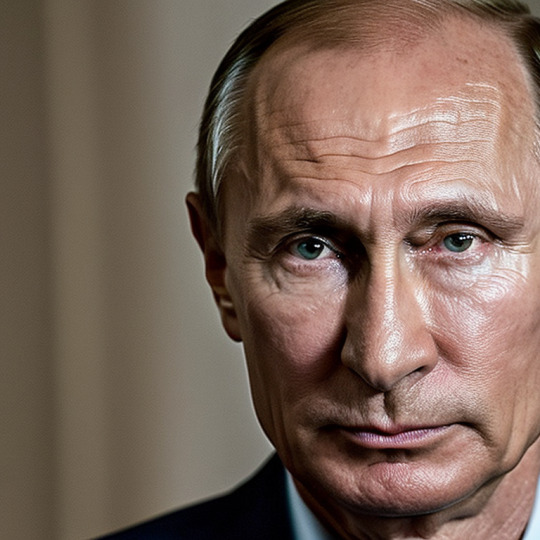
In recent years, the Russian economy has been under a global microscope, facing the unforgiving scrutiny of economists and political analysts alike. On one side, there is an image of robust economic growth and independence. On the other, a candid narrative of an economy facing strain under political tensions and international sanctions. This economic dichotomy presents two primary dimensions worth deliberating upon: Russia's perceived economic resilience in the face of international sanctions, and the potential underlying vulnerabilities of its economy.
Russia's Economic Resilience Amid Sanctions
According to the Russian Ministry of Economic Development, Russia's economy has been showing signs of steady growth. Despite the mounting international pressure, particularly from Western nations, the projected GDP growth for the current year is higher than the previously forecasted 1.2%. The bullish trends and the recovery phase depict a story of economic resilience that has caught the attention of international observers.
Russia's independent economic policy and actions, particularly towards Western sanctions, have played a pivotal role in this narrative. A crucial component of this strategy involves strengthening economic ties with China, as evident from the recent Russian Economic Forum. This forum saw extensive discussions on the sanctions levied by President Biden on North Korea, Russia's retaliation, and means to ensure Russia's economic sovereignty.
Additionally, Russia has been focusing on diversifying its markets, seeking alternative trading partners and lessening dependency on the U.S. The efforts towards fortifying its economic independence involve developing the alternative arms market, where it has already initiated cooperation with China.
Unmasking the Underlying Vulnerabilities
However, the proclaimed robustness of the Russian economy has its critics, with several economists pointing towards potential vulnerabilities beneath the surface. Alexandra Prokopenko, an esteemed researcher at the Carnegie Center for Russian Eurasia and a former adviser to the Russian Central Bank, argues that the country's economy is being subtly undermined by the ongoing conflict with Ukraine.
According to Prokopenko, the enthusiastic portrayal of Russia's economy by President Putin during the St. Petersburg International Economic Forum masks signs of economic overheating. "Demand is growing, but domestic supply of goods and services is not keeping up," she argues, pointing to rising inflation as a consequence.
While Putin has confidently claimed that the country's military spending has led to only a minor budget deficit, Prokopenko suggests otherwise. According to her analysis, Russia has already run a budget deficit of 3.4 trillion rubles, approximately $40 billion, this year alone.
Moreover, Russia's low unemployment rate, which has hit a record low of 3.3% in April, is not an accurate indicator of economic health. Prokopenko posits that this might be due to a massive exodus of workers leaving the country due to the ongoing crisis in Ukraine, leading to an all-time low worker availability.
Conclusion
The Russian economy, like a Shakespearian drama, unravels in layers of complex narratives and counter-narratives. While Russia presents an image of strong economic growth and independence, critics argue that beneath the surface, the economy is creaking under international pressure and internal vulnerabilities. As we continue to observe these unfolding dynamics, the real story of Russia's economic resilience, or the lack thereof, will gradually come to light.
#RussianEconomy#EconomicSanctions#PutinPolicies#GDPgrowth#InternationalRelations#ChinaRussiaRelations#UkraineConflict#EconomicResilience#InflationConcerns#GlobalEconomy
0 notes
Text
"Millions at risk of starvation in North Korea as worst food shortage in years hits the country" #NorthKorea #FoodShortage #HungerCrisis #HumanitarianAid #ArdousMarch #InternationalCommunity #COVID19 #EconomicSanctions #CropFailures #HumanRights
North Korea is facing its worst food shortage in years, with millions of people at risk of going hungry, according to aid workers and officials. The country is grappling with a perfect storm of factors, including crop failures, economic sanctions, and Covid-19 restrictions, which have left many families without enough to eat.
#NorthKorea #FoodShortage #HungerCrisis #HumanitarianAid #ArdousMarch…
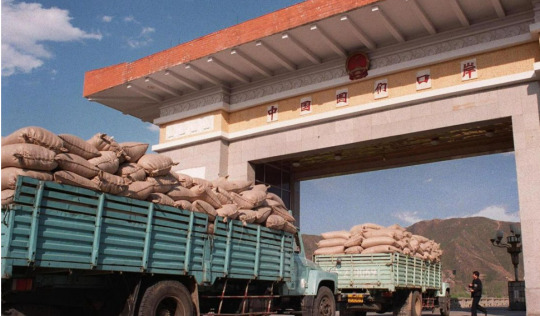
View On WordPress
0 notes
Link
US President Joe Biden said the United States will not lift sanctions against Iran unless the country stops enriching uranium. He continued a standoff with the Iranian supreme leader, who has demanded that sanctions be lifted before the country returns to its obligations under the 2015 nuclear deal.
1 note
·
View note
Photo
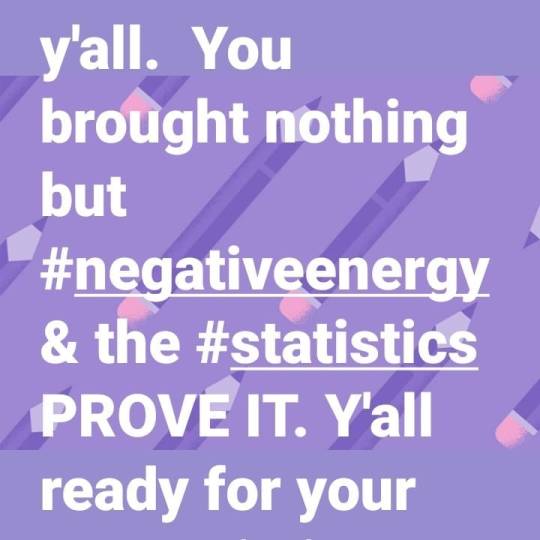
If we could speedy along the outcome that #blacklikeme folks #consistent in that would be SPLENDID. Since some #grayhair idiot decided to hover over me on the fucking public ass bus. Wherever you #rapists came from??? That's #stalkerenergy. No one needs you & I have BUT 1 outcome. Based on #historicalfacts Hmmm. Mad 😠about me telling #facts 😒 #judges #attorneygeneral #districtattorney #SENATORS #citycounsil ???? #votingbooth CHOSEN. & y'all have EARNED #economicsanctions so ya might wanna fall back since I'm speaking words that #hatingassniggas & #hatingassbitches don't understand & if they do? They OFFENDED by. Whoever been #over18 & living in them places where #policebrutality hella thick???? Guess what? The #vote you didn't EXCERCISE OR APPLY IS WHY Y'ALL ARE FUCKED. Also??? Same energy you trying to come at me with you fucking #strangers ???? GET at them damn #whiteprivilege #whitesupremacists WITH THE SAME INTENSITY. #punkasses #locallasvegas https://www.instagram.com/p/CW1pojWPsT4/?utm_medium=tumblr
#blacklikeme#consistent#grayhair#rapists#stalkerenergy#historicalfacts#facts#judges#attorneygeneral#districtattorney#senators#citycounsil#votingbooth#economicsanctions#hatingassniggas#hatingassbitches#over18#policebrutality#vote#strangers#whiteprivilege#whitesupremacists#punkasses#locallasvegas
0 notes
Text
SANCTIONS are increasingly popular, but do they actually work? - Madeline Grant * BLOCKING PROGRESS. The damaging side effects of economic sanctions - Dr. Nima Sanandaji.
SANCTIONS are increasingly popular, but do they actually work? – Madeline Grant * BLOCKING PROGRESS. The damaging side effects of economic sanctions – Dr. Nima Sanandaji.
“If goods don’t cross borders, soldiers will.”
Have we really given sufficient thought to whether such measures actually work?
Reliance on sanctions is a mistake. Sanctions generally do not achieve their underlying objectives, Not only do sanctions undermine the well-being of those living in targeted countries, they also create substantial costs for the world economy. In addition, sanctions…
View On WordPress
#commerce#Economics#economicsanctions#FreeTrade#Globalisation#sanctions#trade#tradesanctions#tradewar
0 notes
Text
Donald Tusk : EU to extend sanctions against Russia
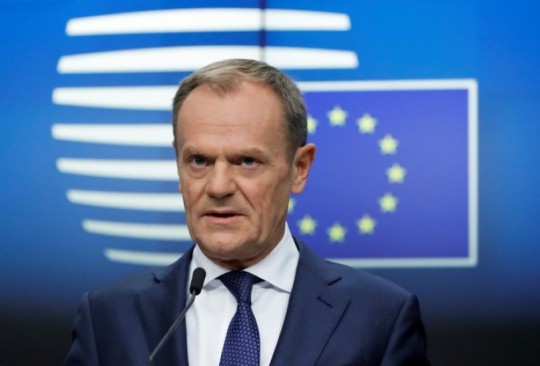
Donald Tusk was certain on Friday that the European Union would renew its economic sanctions against Russia in December after the incident between the Russian and Ukrainian navies in the Sea of Azov.
EU Heads of State and Government, to meet in Brussels on 13 and 14 December, will extend measures for the Russian defense, energy and financial sectors by one year response to the role attributed to Moscow in the separatist war in Ukraine, assured Donald Tusk on the sidelines of the G20 summit in Buenos Aires.
Read the full article
#Azovsea#DonaldTusk#economicsanctions#EU#EuropeanUnion#G20summit#Kiev#Moscow#russia#Russiasanctions#Russianforces#Ukraine#Ukrainiannavies#Ukrainiannavy#Westerners
0 notes
Photo
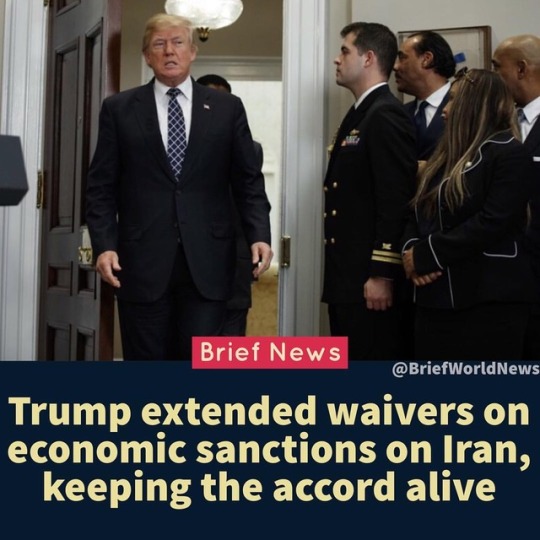
"This is a last chance," Trump warned in a statement that outlined several tough new rules on Iran. Trump's declaration puts great pressure on Britain, France and Germany, the European signatories to nuclear pact with Iran. Trump wants them to help the U.S. devise a new agreement designed to prevent Iran from escalating nuclear activity again next decade, as permitted under the 2015 arrangement. Iran has said it's not interested in any renegotiation. #briefnews . 🤔 what should be negotiated in a new deal? . . ➡️ Please Like and follow @briefworldnews 🗣 awesome followers @cure4liberals @liberalbull_ and @texas_jammer . . #briefworldnews #realnews #news #trending #thenucleardeal #theirandeal #badirandeal #irandeal #realdonaldtrump #presidenttrump #mypresident #negotiation #economicsanctions #internationalrelations #feariran #nucleariran #europeleaderstrip #franceoniran #nonews #badnews . . Photo: AFP (at New York, New York)
#nonews#realdonaldtrump#franceoniran#irandeal#trending#internationalrelations#badirandeal#economicsanctions#thenucleardeal#briefworldnews#theirandeal#realnews#nucleariran#briefnews#negotiation#europeleaderstrip#feariran#badnews#presidenttrump#mypresident#news
0 notes
Text
Economic Weapons: How Biden's Targeted Approach Differs from Trump's Unpredictable Sanctions
#economicsanctions #internationalrelations
0 notes
Photo

the Nguzo Saba is everyday. #economicsanctions #sixwords #sixwordstory #sixwordstories #mikeflo (at United States)
0 notes
Text
Iran's beauty industry hit hard by Covid-19, US sanctions
Iran’s beauty industry hit hard by Covid-19, US sanctions
Iran's beauty industry is under pressure as combined impact of Covid-19 and US sanctions forces salons to shut down.
#Iran #US #EconomicSanctions Subscribe: http://trt.world/subscribe
Livestream: http://trt.world/ytlive
Facebook: http://trt.world/facebook
Twitter: http://trt.world/twitter
Instagram: http://trt.world/instagram
Visit our website: http://trt.world
youtube
View On WordPress
0 notes
Link
#trump #economicsanctions #china
अमेरिका के राष्ट्रपति डोनाल्ड Trump ने कहा है कि वो चीन पर आर्थिक प्रतिबंध लगाने पर विचार कर रहे हैं
0 notes
Photo
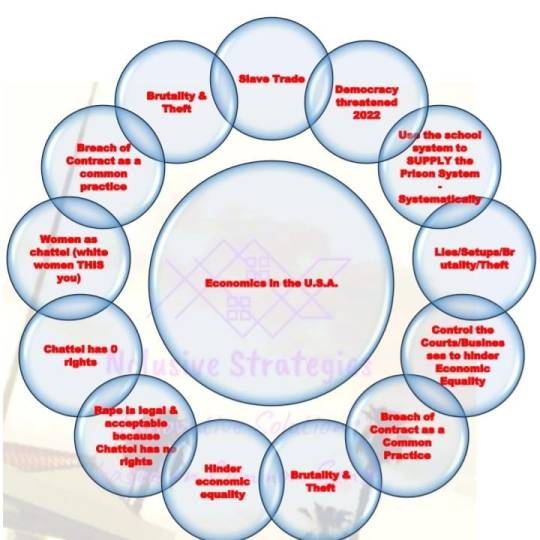
@shaunking @ananavarrofl @iamcardib @nfl @espn @nba @foxsports @8newsnow @other98 @peopleforbernie @gop @hispanic.caucus @aclu_nationwide @acluofil @blklivesmatter @naacp @naacpyc_ I don't ask. I demand/inform/alert. So. What are YOU #influencers with #major #instafollow folk going to DO??? #talkischeap #actions & marching???? That's exactly 💯🤣 #justsayno I want my 💰& to be left the fuck be. 😩 #blackfolks how you #savingyou ???? & talking against ANYBODY ain't it #lgbtq🌈 folk. Got you. #calmdown & #getsworse #incourt @potus @congressionalcountryclub @congressionalblackcaucus @dinatitusnv @cityoflasvegas WHOLE lot of #traitors going on....hmmmm #nclusivestrategiesway #economicsanctions #relocate @nhlblackhawks @riseindigenous @indigenouspeoplesmovement #usterritory #wethepeople #tiktok #tiktoks #collegestudents #highschoolstudents #professionalsports #professionalathlete #applypressure #gangsters #periodt (at Las Vegas, Nevada) https://www.instagram.com/p/CWTt94CrV9L/?utm_medium=tumblr
#influencers#major#instafollow#talkischeap#actions#justsayno#blackfolks#savingyou#lgbtq🌈#calmdown#getsworse#incourt#traitors#nclusivestrategiesway#economicsanctions#relocate#usterritory#wethepeople#tiktok#tiktoks#collegestudents#highschoolstudents#professionalsports#professionalathlete#applypressure#gangsters#periodt
0 notes